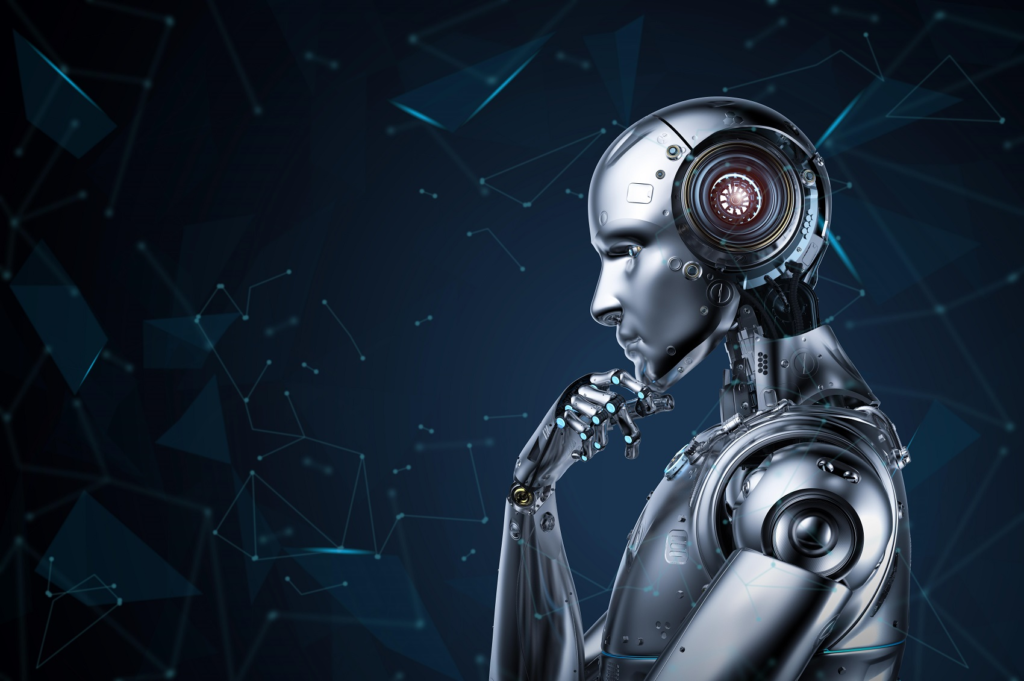Understanding the Basics, Applications, and Impact of Artificial Intelligence (AI) in Modern Society

Artificial Intelligence (AI) has emerged as one of the most transformative technologies of the 21st century. From enhancing daily tasks to solving complex global challenges, AI is reshaping how we live, work, and interact. But what exactly is AI? How does it work, and why is it so impactful? This blog provides an accessible introduction to AI, its core concepts, and its significance in today’s world.
What is Artificial Intelligence?
Artificial Intelligence refers to the simulation of human intelligence in machines that are programmed to think, learn, and adapt like humans. These systems can perform tasks typically requiring human intelligence, such as problem-solving, decision-making, speech recognition, and even creative endeavors like writing and painting.
Key Characteristics of AI:
- Learning: AI systems improve over time by analyzing data and recognizing patterns.
- Reasoning: They use logic to solve problems and make decisions.
- Perception: AI can interpret and respond to visual, auditory, and sensory data.
- Interaction: Many AI systems, like virtual assistants, can interact with users through natural language.
The Evolution of AI
AI has evolved significantly since its conceptualization in the mid-20th century.
- 1950s: The term “Artificial Intelligence” was coined, and basic algorithms were developed.
- 1980s: Machine Learning (ML) emerged, enabling AI systems to learn from data.
- 2010s: Deep Learning revolutionized AI, powering innovations like self-driving cars and virtual assistants.
- 2020s: Generative AI models like GPT and DALL-E are pushing the boundaries of creativity and automation.
Types of AI
AI can be categorized into three main types:
- Narrow AI: Focused on specific tasks (e.g., chatbots, recommendation systems).
- General AI: Hypothetical systems with human-like cognitive abilities across diverse tasks.
- Superintelligent AI: Future AI with intelligence surpassing human capabilities.
Applications of AI
AI is deeply integrated into various sectors, driving innovation and efficiency.
- Healthcare: AI aids in diagnosing diseases, personalizing treatments, and even developing new medicines. Example: AI algorithms like IBM Watson assist doctors in cancer diagnosis.
- Finance: Financial institutions use AI for fraud detection, risk assessment, and personalized investment strategies. Example: AI-driven robo-advisors manage investment portfolios.
- Education: AI enhances personalized learning experiences and automates administrative tasks. Example: EdTech platforms like Duolingo adapt lessons to individual learning speeds.
- Transportation: AI powers autonomous vehicles, traffic management systems, and predictive maintenance. Example: Tesla’s autopilot feature relies on AI for navigation.
- Entertainment: AI curates personalized recommendations for music, movies, and games. Example: Netflix’s recommendation algorithm ensures binge-worthy content suggestions.
How AI Works
AI systems rely on data, algorithms, and computational power to function effectively.
- Data Collection: Large datasets serve as the foundation for AI models.
- Model Training: Algorithms learn patterns from data during training.
- Decision Making: AI applies learned insights to perform tasks or make predictions.
- Feedback Loop: Continuous data input helps refine AI performance over time.
Key AI Technologies:
- Machine Learning (ML): Enables AI to learn and improve from experience.
- Natural Language Processing (NLP): Allows AI to understand and generate human language.
- Computer Vision: Helps AI interpret visual data like images and videos.
The Future of AI

AI is poised to revolutionize every facet of human life. Innovations in AI-driven healthcare, education, and sustainability promise a brighter future. However, achieving this potential requires responsible development and ethical use of AI technologies.
Artificial Intelligence is no longer a concept confined to science fiction—it is a reality shaping the present and defining the future. By understanding its fundamentals, we can better appreciate its transformative potential and navigate its complexities responsibly. As AI continues to evolve, it invites us to explore its possibilities while addressing its challenges.
Are you ready to embrace the AI revolution? The journey starts here.
Free Artificial Intelligence Course
Welcome to UGTWorld’s newest segment – A Complete Artificial Intelligence Free Course designed to empower learners with in-depth knowledge of AI, from fundamentals to advanced applications. This course is your gateway to understanding and mastering the dynamic world of Artificial Intelligence, with a special focus on cutting-edge fields like Generative AI and Imprinting AI.


